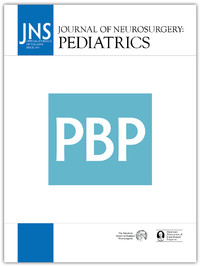Objective
Migraine history has recently been identified as a risk factor for concussion and recovery. The authors performed a cross-sectional study examining baseline outcome measures on newly developed and implemented concussion assessment tools in pediatrics. The purpose of this study was to examine the effects of premorbid, diagnosed migraine headaches as a risk factor on vestibular and oculomotor baseline assessment in pediatric athletes.
Methods
Pediatric athletes between the ages of 8 and 14 years with a diagnosed history of migraine headache (n = 28) and matched controls without a history of diagnosed migraine headache (n = 28) were administered a baseline concussion assessment battery, consisting of the Vestibular/Ocular Motor Screening (VOMS), near point of convergence (NPC), and the King-Devick (K-D) tests. Between-groups comparisons were performed for vestibular symptoms and provocation scores on the VOMS (smooth pursuit, saccades, convergence, vestibular/ocular reflex, visual motion sensitivity), NPC (average distance), and K-D (time).
Results
Individuals diagnosed with migraine headaches reported greater VOMS smooth pursuit scores (p = 0.02), convergence scores (p = 0.04), vestibular ocular reflex scores (p value range 0.002–0.04), and visual motion sensitivity scores (p = 0.009). Differences were also observed on K-D oculomotor performance with worse times in those diagnosed
with migraine headache (p = 0.02). No differences were reported on NPC distance (p = 0.06) or headache symptom reporting (p = 0.07) prior to the VOMS assessment.
Conclusions
Pediatric athletes diagnosed with migraine headaches reported higher baseline symptom provocation scores on the VOMS. Athletes with migraine headaches also performed worse on the K-D test, further illustrating the influence of premorbid migraine headaches as a risk factor for elevated concussion assessment outcomes at baseline. Special consideration may be warranted for post-concussion assessment in athletes with migraine headaches.
Summary Points
- Pediatric athletes with a history of migraine headache diagnosis preformed worse on the K-D test as compared to matched controls without a history of migraine.
- The results of this study help to further accentuate the need for individualized baseline testing utilizing multifaceted assessment strategies, especially in individuals with premorbid migraine history.

